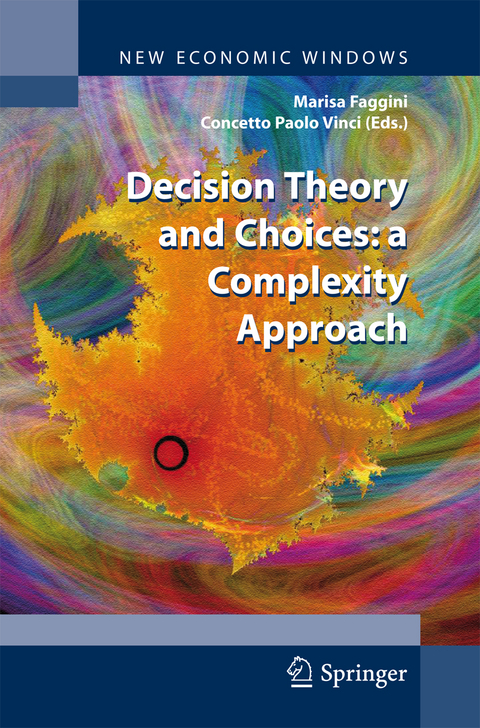
Decision Theory and Choices: a Complexity Approach
Springer Verlag
978-88-470-5817-0 (ISBN)
General Issues.- Coherence, Complexity and Creativity: the Dynamics of Decision Making.- Complexity Theoretic Bounded Rationality and Satisficing.- Optimisation and “Thoughtful Conjecturing” as Principles of Analytical Guidance in Social Decision Making.- Agent Based Models.- A New Agent-based Tool to Build Artificial Worlds.- Exploration Modes and Its Impact on Industry Profitability.- Financial Fragility and Interacting Units: an Exercise.- Techniques and Tools.- Using Homogeneous Groupings in Portfolio Management.- Elman Nets for Credit Risk Assessment.- Modeling from Physics.- From Chemical Kinetics to Models of Acquisition of Information: On the Importance of the Rate of Acquisition of Information.- Thermodynamic-like Approach to Complexity of the Financial Market (in the Light of the Present Financial Crises).- A Physicist’s Approach to Phase Controlling Chaotic Economic Models.- Related Issues.- A Note on Complaints and Deprivation.- Predictability of SOC Systems. Technological Extreme Events.- Ontology Based Risk Management.
| Erscheinungsdatum | 08.07.2016 |
|---|---|
| Reihe/Serie | New Economic Windows |
| Zusatzinfo | XIV, 251 p. |
| Verlagsort | Milan |
| Sprache | englisch |
| Maße | 155 x 235 mm |
| Themenwelt | Mathematik / Informatik ► Mathematik ► Angewandte Mathematik |
| Mathematik / Informatik ► Mathematik ► Finanz- / Wirtschaftsmathematik | |
| Mathematik / Informatik ► Mathematik ► Graphentheorie | |
| Mathematik / Informatik ► Mathematik ► Wahrscheinlichkeit / Kombinatorik | |
| Naturwissenschaften ► Physik / Astronomie | |
| Wirtschaft ► Volkswirtschaftslehre ► Wirtschaftspolitik | |
| ISBN-10 | 88-470-5817-1 / 8847058171 |
| ISBN-13 | 978-88-470-5817-0 / 9788847058170 |
| Zustand | Neuware |
| Haben Sie eine Frage zum Produkt? |
aus dem Bereich


